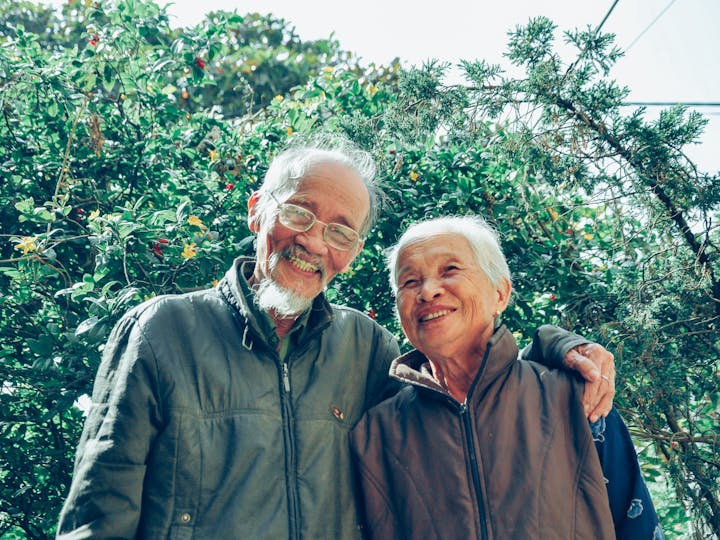The Role of Seniors in Building a More Sustainable Future

Building a more sustainable future is becoming one of the most pressing issues in our current world, and it affects everything from the environment to the global economy. While younger generations are often regarded as the driving force behind environmental movements, seniors play a vital and often overlooked role in creating a more sustainable future. Older adults can significantly contribute to sustainability efforts with their wealth of life experiences and influence in the community. This article will explore how happy seniors can foster a greener world, from adopting more sustainable living practices to advocating for environmental change.
Seniors’ Perspectives on Sustainability
Shaped by decades of personal experience, seniors have a unique angle on the environment and Sustainability. Having witnessed long-term environmental changes over their lifetime, they understand the importance of conservation and sustainable practices. Many seniors grew up when recycling and reusing materials was unnecessary, making them natural advocates for environmental Sustainability.
In addition to life experience, seniors can influence the younger generations. As parents, grandparents, and mentors, they can pass down valuable knowledge of sustainable practices and inspire their families and others to adopt greener lifestyles. They also carry weight in community discussions, making seniors powerful advocates for caring about the success of the environment’s future.
Sustainable Living Practices for Seniors
While seniors can often help influence others, they can also live sustainably by making small lifestyle changes. One of the easiest changes is adopting energy-efficient habits at home, like using LED lights, energy-saving home appliances, being mindful of water usage, and reducing electricity consumption to lighten their carbon footprint.
Picking up gardening, whether at home or in a community garden, can help promote buying local, which would reduce the reliance on processed goods that tend to have higher carbon footprints. Getting around using eco-friendly transportation is also a great idea to reduce greenhouse gas emissions. Walking, biking, and using public transportation are some great examples.
To further reduce overconsumption, mindful purchases to reduce waste are an effective way to live more sustainably. For the seniors who picked up gardening, composting food scraps would also aid in the reduction of waste.
Seniors as Advocates for Environmental Change
Beyond making changes in their personal lives, seniors can play a pivotal role in advocating for environmentally beneficial policy changes. Joining local environmental groups and attending town hall meetings while speaking out about sustainability issues can help drive change. Many retired seniors can use their time during the day to volunteer for conservation projects, whether helping clean up parks, planting trees, or marketing recycling initiatives.
Educating others is another powerful way to make an impact as a senior advocate. Talking to family, community members, and neighbors about the positive effects of policy changes can spread awareness and encourage others to adopt greener habits. Voting for leaders who support eco-friendly policies and prioritize environmental protection can help ensure that economic Sustainability will remain a priority at all government levels. Every voice counts, and seniors have the power to be heard.
Collaborating with other generations for a greener future
One of the most effective ways for seniors to create lasting environmental change is through collaboration with the other generations. Seniors can act as mentors to younger people by sharing their knowledge about sustainable living—whether teaching a grandchild how to garden, showing a neighbor how to compost, or engaging in healthy conversation with friends and family about environmental conservation. Many organizations offer programs that bring seniors and other generations together for environmental projects, creating opportunities for mutual learning and action between one another.
Encouraging younger family members to adopt greener habits can be as simple as leading by example. Whether involving grandchildren in recycling, cooking meals with locally sourced ingredients, or reducing household energy usage, these small actions can leave a lasting impression. An easy and fun idea to engage grandkids or younger family members is by assisting them with crushing cans and then taking them to a local recycling center to earn money. Sustainability isn’t just about the present—it’s about ensuring future generations have a healthier planet.
Overcoming Barriers as Seniors
While many seniors are eager to embrace Sustainability, there can be challenges, whether its mobility or health conditions making some activities difficult. However, even seniors with limited mobility can practice eco-friendly methods at home, like conserving energy but turning off the lights once done in a room, reducing mindless waste, or educating others about Sustainability.
Another hurdle seniors may experience is having access to sustainable technology and products. Making eco-friendly options more accessible—such as energy-efficient appliances designed with seniors in mind—can encourage more of the older generation to pick up these habits. Community programs that are inclusive and welcoming to seniors can also play a big role in empowering our elders to actively participate in sustainability efforts of the community.
Conclusion
Seniors can play an important role in building a more sustainable future. Their life experience, the ability to influence others, and commitment to traditional sustainable practices make them invaluable allies in the fight for a greener world. By making small changes in their daily lives, advocating for environmental policies, and working with younger generations, seniors can be driven to meaningful change. Sustainability is a shared responsibility, and every effort counts. No matter where you are in life, it’s never too late to become an environmental steward and make a difference in the future of our world.
